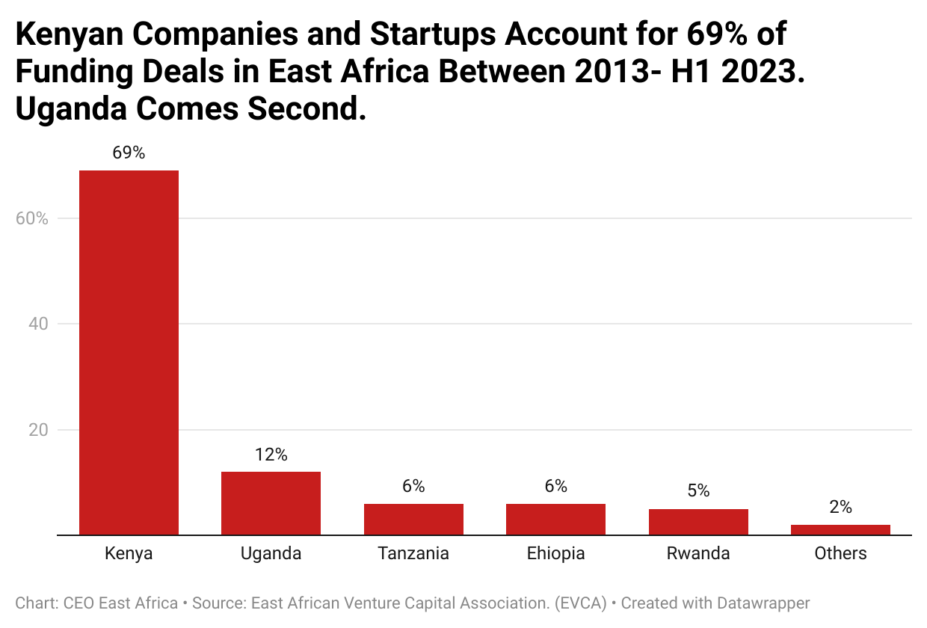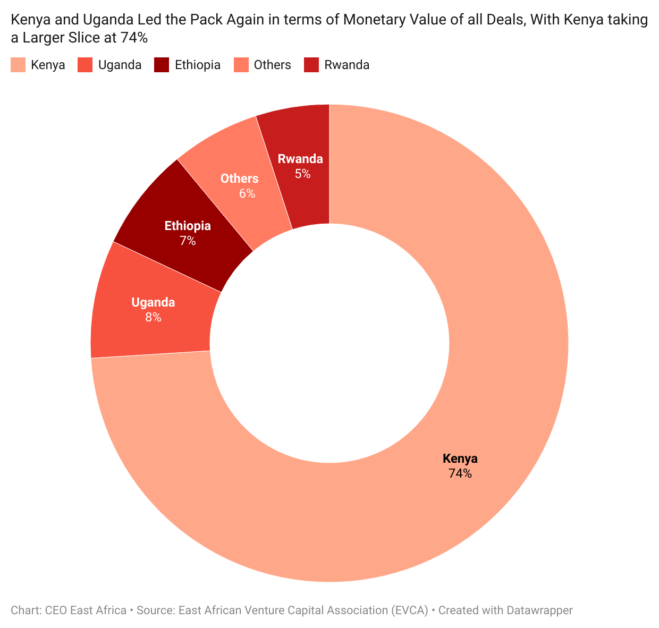The East African Venture Capital Association (EVCA), a body that represents private capital providers including development finance institutions (DFIs), private equity and venture capital funds, family offices and impact investors among others that support businesses and enterprises across the region, released its report of PE and VC deals from its inception in 2013 to the first half of 2023.
Over the past decade, Kenya has consistently claimed the majority of PE and venture capital deals in East Africa, accounting for a staggering 69% of the 478 PE and development finance institution (DFI) investments made between 2013 and the first half of this year, according to the East Africa Venture Capital Association (EAVCA). This dominance is primarily attributed to Kenya’s robust and diversified economy, coupled with a rich talent pool that has transformed Nairobi into a preferred investment hub for investors seeking regional opportunities.
However, Uganda comes second, accounting for 12% of the total investments. This is a significant achievement considering the competition from other East African nations such as Tanzania and Ethiopia, which accounted for 6% each, and Rwanda, which accounted for 5%.

In terms of monetary value, Kenya again leads the pack, representing 74% of the total disclosed deal value of $8.6 billion. Uganda, however, holds its ground, coming in second with 8% of the total deal value, ahead of Ethiopia and Rwanda, which accounted for 7% and 5% respectively.

Kenya’s economic prowess and its position as the headquarters for numerous regional brands have undoubtedly played a significant role in its dominance. The country’s large addressable market, strengthening the rule of law, particularly in commercial matters, and a large talent base have set it apart in attracting PE and DFI investments.
On the other hand, Rwanda despite having the lowest cost of opening a business in East Africa and the highest ease of doing business rankings, ranks lowly because of its relatively small market size and population which have made it less attractive for commercial PE investment.
In contrast, Uganda’s stronghold on second place can be attributed to a combination of factors, including favourable government policies and less restrictive monetary regulations. These factors have facilitated the flow of PE investments into the country, enabling it to secure the second spot in the region.
However, the journey has not been without challenges for other East African nations. In Tanzania, for instance, the institutionalisation of businesses needs to catch up to its peers, resulting in lengthier transactions and hindering investors’ ability to create value. Ethiopia, despite its large market and rapidly growing economy, has been hampered by political instability and a fixed exchange rate regime, making it challenging to extract dividends.
